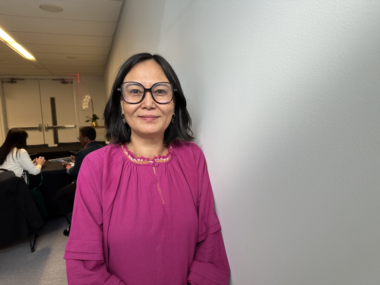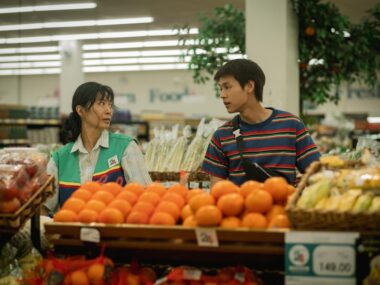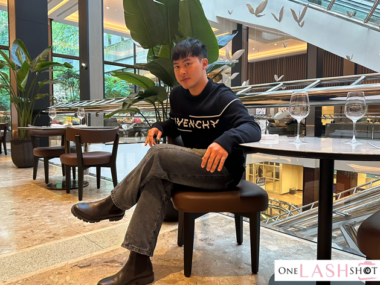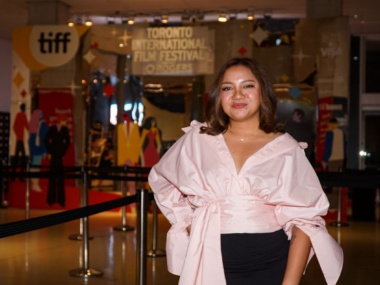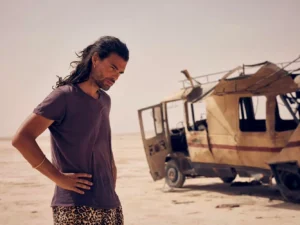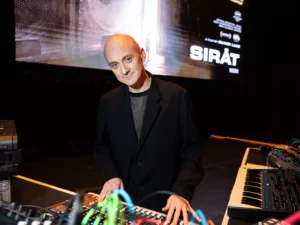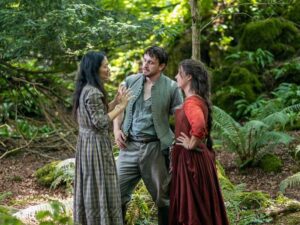Antonio Tam is a Hong Kong-based director and screenwriter known for his distinctive storytelling and unique cinematic style. Emerging in the local film scene, Tam has built a reputation for blending emotional depth with striking visual aesthetics. His work often explores themes of identity, societal pressures, and the complexities of modern life in Hong Kong.
Jeffrey Lam is a versatile force in Hong Kong’s entertainment scene—an actor, director, and occasional producer who’s been captivating audiences for years. Known for his wide-ranging roles across TV dramas and films, he effortlessly switches between comedy and drama, earning respect for his authentic performances.
George Au is a Hong Kong actor and singer who initially began his career as a member of the Cantopop group P1X3L before embarking on his acting career in the film industry. His work spans different genres, from dramas to comedies, and he’s well-regarded for his performances in television dramas, particularly with TVB, Hong Kong’s largest television network.
Directors Antonio Tam and Jeffrey Lam collaborated on the thriller Valley of the Shadow of Death, which had its North American premiere at the NYAFF on July 13th.
The story follows Pastor Leung, a man devoted to preaching the power of God’s forgiveness, who faces an unimaginable dilemma when his church takes in Ah Lok, the young man responsible for the tragic death of his cherished daughter, Ching Ching. The film stars Anthony Wong as Pastor Leung, George Au as Ah Lok, Sheena Chan as Ching Ching, with Louisa So portraying Pastor Leung’s wife.
One Lash Shot plunged into the creative vortex of the young director duo Antonio Tam and Jeffrey Lam, alongside actor George Au, as this vibrant trio pulled back the curtain on the profound and often misunderstood psychological art of forgiving ex-convicts.
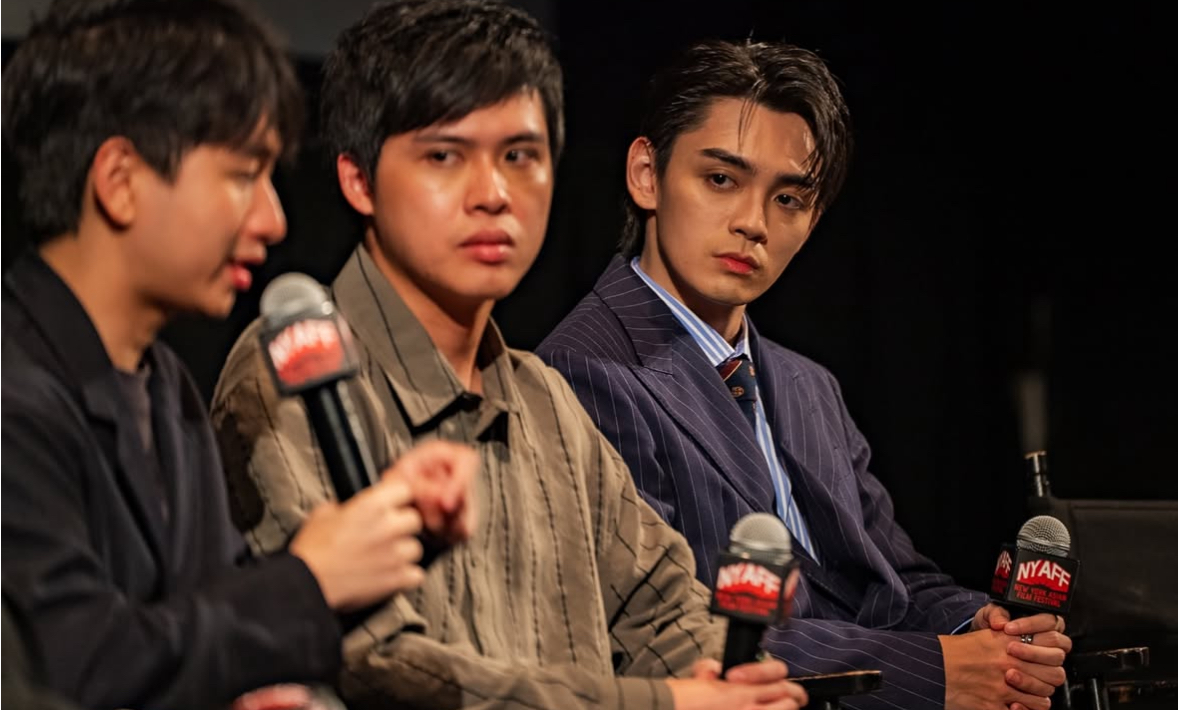
What made you get into the film industry in the first place?
Jeffrey: I actually graduated from the Hong Kong Academy of Performing Arts, where I studied filmmaking and majored in screenwriting. I first got into the industry as an actor and made a film called G Affairs in 2018, which helped people in the industry get to know me.
Since my background is in filmmaking, I also worked on a few short films and TV dramas. Later on, one of my teachers, a director named Sunny Chan, remembered my work. I had previously made films about religion and the tension between faith and humanity, so he thought I’d be a good fit to direct his project. That’s how I ended up getting the opportunity to make this feature film with him.
Antonio: How did I get into the industry? I think it started with my love for writing. That passion led me into screenwriting and eventually directing. I’ve loved writing since I was six—I always knew I wanted to be a writer. But everything shifted when I watched Martin Scorsese’s Raging Bull around the age of 15 or 16. I realized then that I had to become a director. I thought that if I could create something even remotely like Raging Bull one day, I could die in peace. That became my motivation—writing scripts and always pushing forward. Of course, luck played a part too.
I was studying at the same school as Jeffrey, and Valley of the Shadow of Death was actually my graduation project. After finishing the script, I submitted it to a competition called the Keep Rolling, Keep Running program, which was organized by the Federation of Hong Kong Filmmakers and supported by Mr. Louis Koo. Fortunately, our script won, which provided us with the funding to turn it into a feature film. That’s how we got our start in the industry.
George: Yes, I also got my start through a competition called King Maker in 2019. After that, I formed a band called P1X3L, so I actually began my career as a musician.
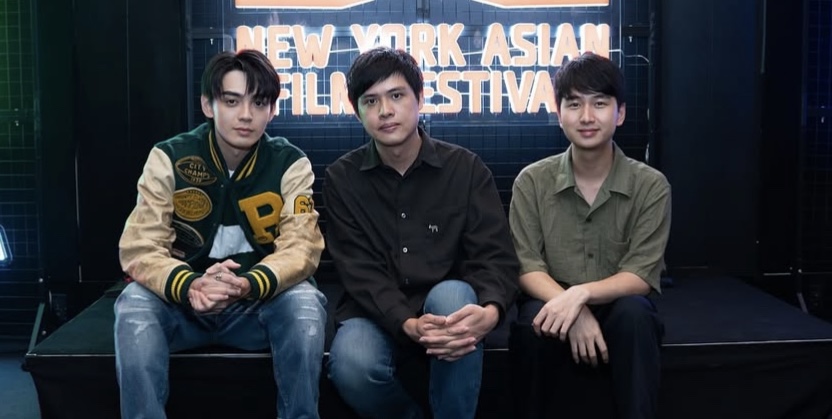
As you mentioned, you originally came from the Cantopop music industry—what motivated you to take a brief detour into acting, and specifically, to make this story your film debut?
George: I actually started out in music—that was the path I was really pursuing. But over time, my management company began exploring more opportunities for me, so I started appearing in entertainment shows and doing television work. I realized that acting gave me a space to express my self-confidence, and in that way, it really helped me grow.
What inspired you to make this film, titled after the biblical phrase Valley of the Shadow of Death? Was there a specific event that sparked the idea?
Antonio: There wasn’t a single event that sparked it, but I read many news stories about Christianity and forgiveness, both in Hong Kong and abroad. A lot of them involved the children of pastors being murdered, and yet the pastors chose to forgive the killers. I was shocked by those stories—not just one, but many.
I was struck by the magnitude of that kind of love. It’s beyond anything I could imagine or fully understand about humanity. Revenge feels natural to us; hating someone is part of being human. But loving someone you hate? That’s unimaginable to me.
That’s why I made the pastor such a conflicted character—because I, too, wrestled with that idea. I am, and still am, a Christian. I struggle with how the gospel aligns with human nature. We want to be good people, yet we keep falling short. We are always in the middle, always struggling. That’s exactly the challenge the pastor is facing—his inner conflict.
Jeffrey: I think one of the main reasons the script drew me in is that my father is a pastor, so I could connect with it on a personal level. Because of my background and education, whenever I have the chance to make short films, I often focus on religion and the tension between faith and human nature as the heart of the story. I’m naturally drawn to exploring that struggle—it’s a compelling dramatic theme.
In Valley of the Shadow of Death, I found that the pastor’s dilemma has no easy solution. He preaches to others about forgiving their enemies, yet when confronted with his own personal enemy, he finds he cannot follow his own teachings. That inner conflict makes the story rich and powerful material for drama.
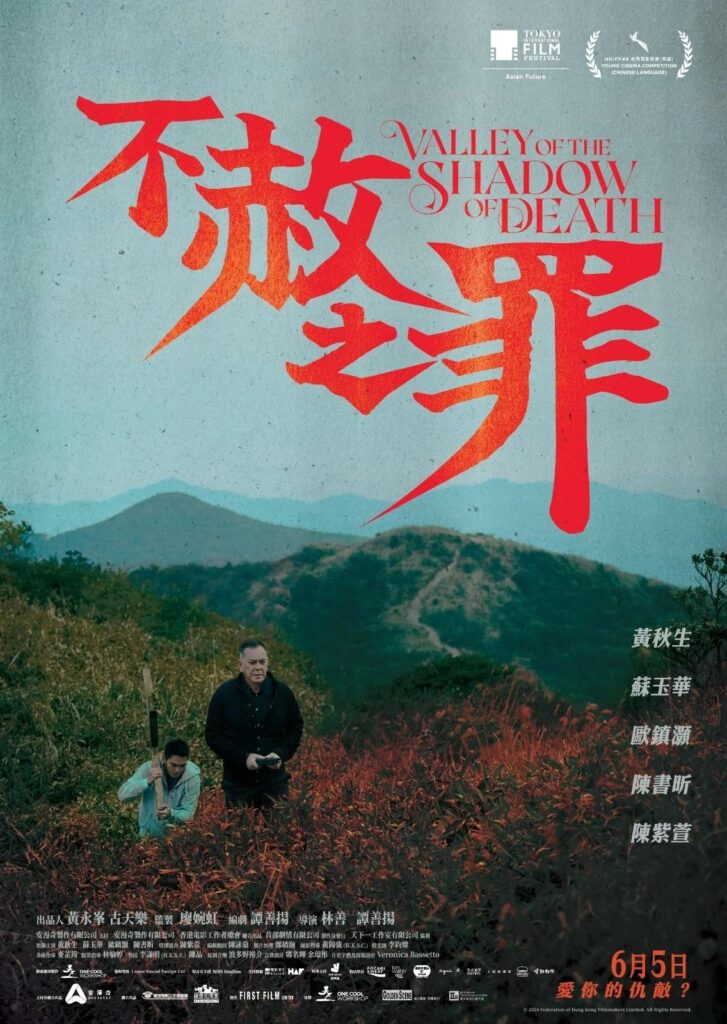
For me, as a director making my first feature film, it’s important to find a personal connection and a subject that resonates with my own background. That’s exactly what drew me to take on Valley of the Shadow of Death as my directorial debut.
As you mentioned, your father is a pastor, Jeffrey. How much of his character or influence is reflected in Anthony Wong’s portrayal of Pastor Leung?
Jeffrey: I wouldn’t say the story is that personal, and the character isn’t based on my father. The script was entirely written by Antonio—I was more of a reader than a writer. But growing up as a pastor’s child helped me understand Ching Ching’s character on a deeper level. The script doesn’t provide much detail about her background or personality, but knowing she’s a pastor’s daughter says a lot. Children of pastors often carry the weight of others’ expectations—they’re expected to behave a certain way in church, at school, and elsewhere. That pressure can make them want to rebel. From my own experience, I could relate to Ching Ching’s character much more easily.
Jeffrey, I understand you were initially interested in playing the role of Ah Lok, but Antonio, you had some reservations. The role eventually went to George through an open casting call. Can you walk me through how that decision unfolded—even with casting Anthony Wong and Louisa So?
Antonio: Okay, so first of all, we cannot cast Anthony Wong. Most likely, he would cast us as directors because he’s like… how do you say it? He’s like a legend in Hong Kong. So, it’s our pleasure to work with Anthony Wong. Actually, it’s quite interesting. When I started writing the script, I pictured Anthony in the role. He had played a priest in another film, and I just went with my gut—thinking, “If Anthony Wong plays this character, how would he act? How would he deliver these lines?” It felt like a miracle when he read the script and genuinely appreciated it. He was truly interested in being part of our film.
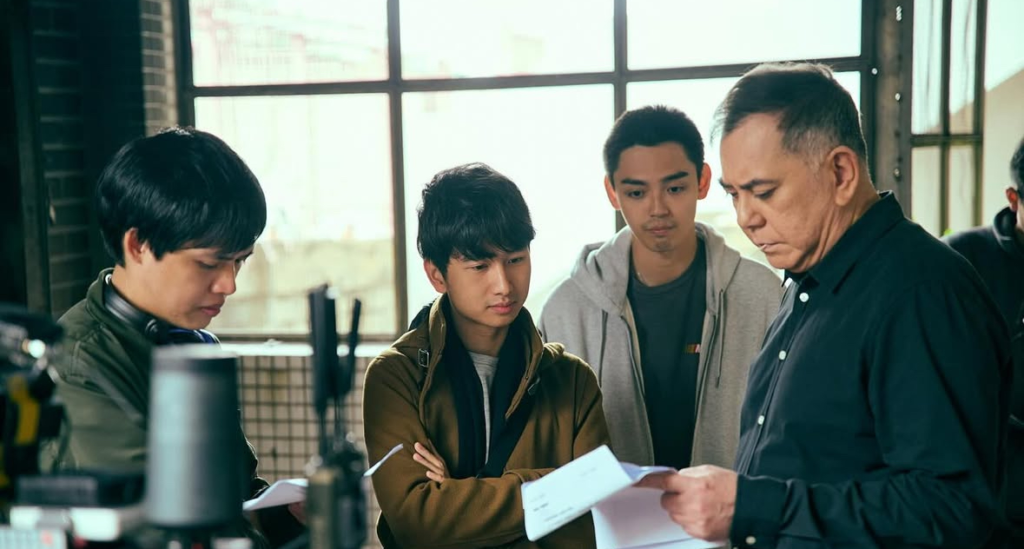
Jeffrey: As for Louisa So, I had acted with her in The Sparring Partner, and her strong, outspoken personality left a deep impression on me. When we were discussing who could play Pastor Leung’s wife, Louisa immediately came to mind. She’s a very well-known stage actress in Hong Kong and has worked with Anthony before on both TV and stage. Their existing chemistry made me feel the audience would truly believe they were a couple.
Her strong personality also fit the role perfectly. Pastor Leung’s wife is outspoken and isn’t afraid to challenge her husband’s decisions—she tells him that trying to forgive Ah Lok is unreasonable and that he has strayed from his Christian faith. I felt Louisa could bring that character to life convincingly.
Antonio: For George, it’s actually quite an interesting story. A month before filming began, we still hadn’t found the right actor for Ah Lok. We needed someone who could portray a rapist, but at the same time, convey a sense of innocence in some way. It’s a very complex character, and finding the right person for the role was challenging.
After searching and auditioning many actors, Jeffrey eventually decided he could take on Ah Lok. I remember thinking, “Wow, how confident!” Because while he could portray the rapist side, he didn’t naturally come across as innocent—at least not initially! (Laughs) Right? It’s a certain feeling you get.
I also discussed it with Anthony Wong, who jokingly said that if he were Ah Lok, his character might be dead in the very first scene! (Laughs)
I actually saw George’s performance in a TV series and was impressed. For me, George is a huge idol in Hong Kong, and I wasn’t sure if he could really act. But that show proved he had a strong range, and I wanted to meet him in person to understand his personality and how he would approach the character.
After meeting him, I thought, “He’s the best choice we have.” He could portray that innocence, yet when you look at him, there’s a hint of something darker—but not fully evil. He exists in that middle space, between black and white, and that’s exactly what Ah Lok needed. I felt he was the perfect choice for the role.
George, what was your experience like working with both directors, and with Anthony and Louisa?
George: I think it was a really fresh experience for me. It was new, and in many ways, it felt like an experiment. I was working with young directors, so in a lot of ways, we were very age-appropriate. When discussing the plot, the dialogue, and other aspects of the film, there was a sense of intimacy and closeness rather than distance, despite the difference in experience.
At the same time, working with Anthony Wong and Louisa So—both veterans from an older generation of actors—taught me a lot about professionalism.
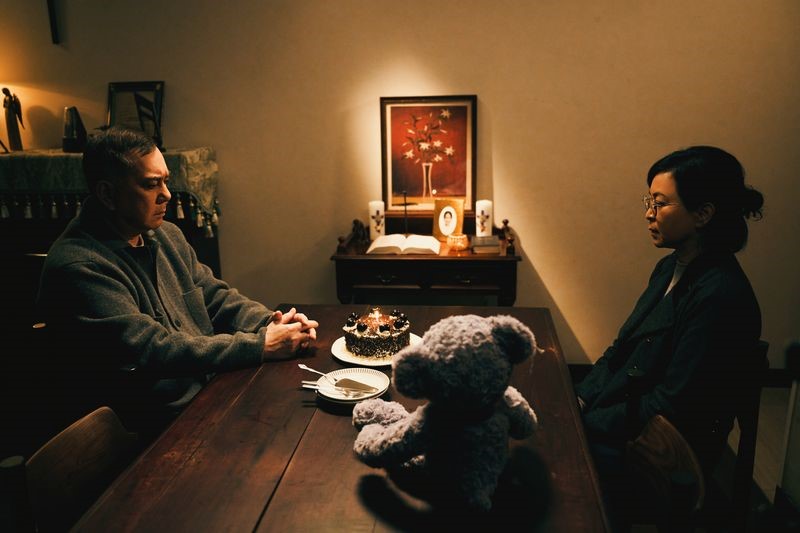
This film is actually the debut for two directors, as well as my own debut. So truly—we were all very dedicated. We really, really wanted to make the best film possible.
What was the most challenging scene you had to film, and how did you prepare for it?
George: I’d say it was the scene in the back alley—when Ah Lok discovers that the pastor is Ching Ching’s father. That moment was such a shocking revelation.
What made it difficult was that the dialogue was changed a lot on the day of shooting. It was crucial to capture all the emotional nuances as things kept shifting. A big part of the challenge was guiding the scene through its emotional highs and lows. I was very fortunate that Anthony gave me plenty of guidance, as well as the time and space I needed to prepare.
I would have thought it would be the baptism scene, or the cross-carrying sequence!
George: Shooting that scene wasn’t actually difficult. It might seem intense and overwhelming to the audience, but in reality, filming it was fairly manageable.
Which scene was the most difficult to shoot from a directorial perspective?
Jeffrey: For me, it was the baptism scene—it’s the climax of the entire film.
We had 14 days to shoot the whole film, and we planned to shoot that scene on Day 13. The scenes leading up to the baptism underwent frequent script changes, which affected the character development. So, we left the baptism scene until the end to ensure it aligned with how the characters evolved in earlier scenes.
Why was it the most difficult scene for me? Because it involved many shots and was emotionally the most intense. We also had no way of knowing in advance how Anthony would approach it—he never explained or revealed his plan beforehand. I was so worried the night before that I actually started praying. I hadn’t prayed in quite a while, having stepped away from the church for some time, but that day, I felt prayer was all I could do.
Despite my worries, the day of shooting went quite smoothly, thanks to careful planning. We explained our vision to Anthony before the shoot because we were concerned, he might not accept our plan, so we had to go over everything in detail right before filming.
Anthony’s performance in that scene impressed us immensely. It perfectly captured how the pastor, after long emotional suppression, finally lets everything explode—his rage, his questions about God, and his complex feelings toward Ah Lok and his daughter. His portrayal was overwhelming in the best way, truly reflecting the character’s depth. It was a very difficult scene to shoot, but absolutely worthwhile.
Which is your favorite scene in the movie?
Antonio: I think my favorite scene is when the pastor treats Ah Lok to his first meal—the burger scene. It’s their first real face-to-face communication. I think Anthony Wong acts so well in repressing all his feelings. Yet you can tell from his eyes how much he is struggling. I love that moment when he slapped the burger because it was an improv, actually! And I thought, “Wow, it’s so shocking!” and all of us were just in awe. So, I love that scene.
Jeffrey: For me, I think it would be the cross-bearing scene—bringing the cross to the mountain. The scene that we use in our film poster. I think it shows the complexity and the moral ambiguity of Pastor Leung’s actions.
On the surface, he’s trying to help him—you have to understand how Jesus suffered for us, so you have to carry the cross, do not wear shoes, and walk that road of suffering to feel how Jesus sacrificed for us. But at the same time, the audience will question and wonder—is Pastor Leung actually helping him, or is he trying to use this to torture Ah Lok?
I think it is a very engaging scene, and it shows how Pastor Leung is facing great difficulty in dealing with Ah Lok.
George: The wonderful memories when Ah Lok and Ching Ching became good friends—or became intimate—those were beautiful memories and those would be the scenes that I pick. The warmth and the sense of companionship of having a friend— it is something that is very real and something that is very cherished.
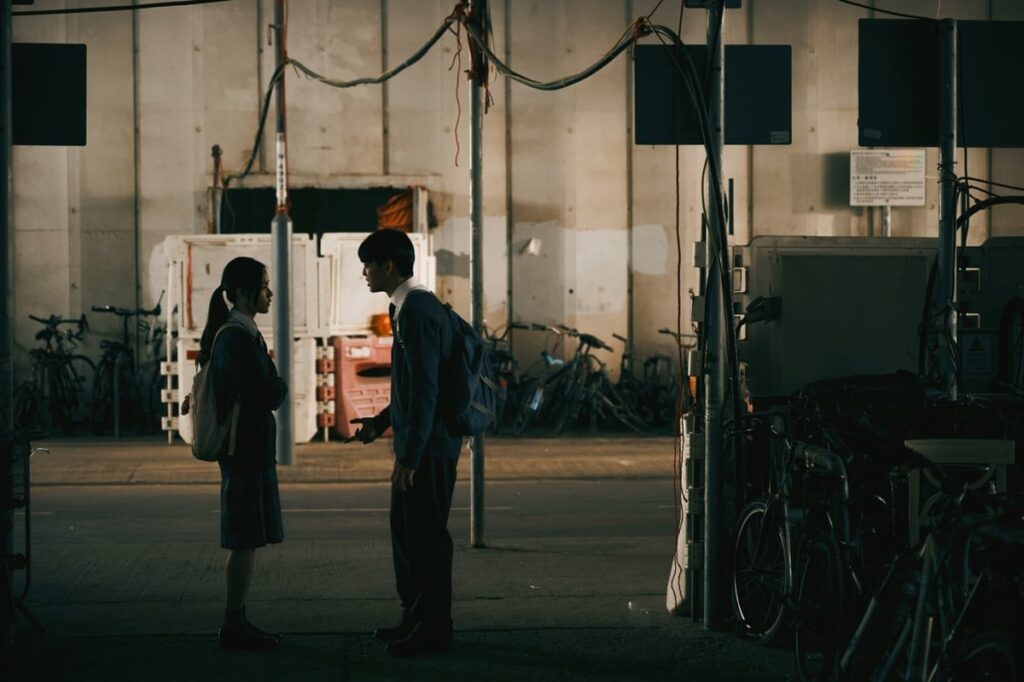
Basically, the scene where she offered me the gym clothes and also the one where we were walking along the pedestrian bridge.
In your opinion, is it possible to forgive a character like Ah Lok? And should someone like him be given a second chance?
Jeffrey: I think forgiveness is possible, but it can’t be forced. In the film, Pastor Leung’s wife says she will never forgive Ah Lok, but by the end, she seems to find a way to deal with her anger. For the audience, that reflects that she has, in a way, already forgiven him—or at least found a way to resolve her anger within herself.
True forgiveness takes a great deal of time. You can’t force it immediately. But if you honestly confront your anger and face the person you hate the most, perhaps someday you may be able to truly forgive.
As for whether Ah Lok deserves forgiveness, I think it depends on whether he genuinely repents—whether he truly understands the wrongs he has done and the harm he has caused. If he sincerely acknowledges his crimes and sins, I believe that, in the long term, he could earn a chance at forgiveness.
But I don’t think it’s something he can force on others. He can’t say, “I’ve changed, so you must forgive me.” Forgiveness depends on the other person and how they choose to deal with him. He may have a chance, but it’s not guaranteed for everyone—it really depends on how each individual approaches this issue.
Antonio: I think everyone deserves a second chance.
George: The idea of forgiveness—or that chance—isn’t something others can give you. It doesn’t come from someone else; it comes from within yourself. That sense of forgiveness, that opportunity to move on, originates in your own heart. What we can offer others is tolerance, and the willingness to be understanding toward them.
For me, the most important part is learning to understand, to tolerate, and ultimately to forgive oneself, rather than focusing solely on forgiving others.
[Author’s Note: Special thanks to Jeffrey, Antonio and George for bringing this intriguing story to life!]


